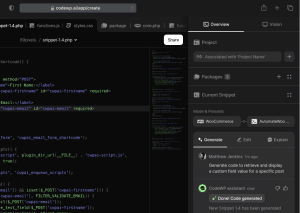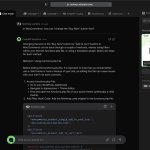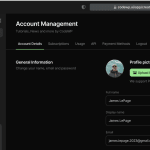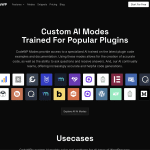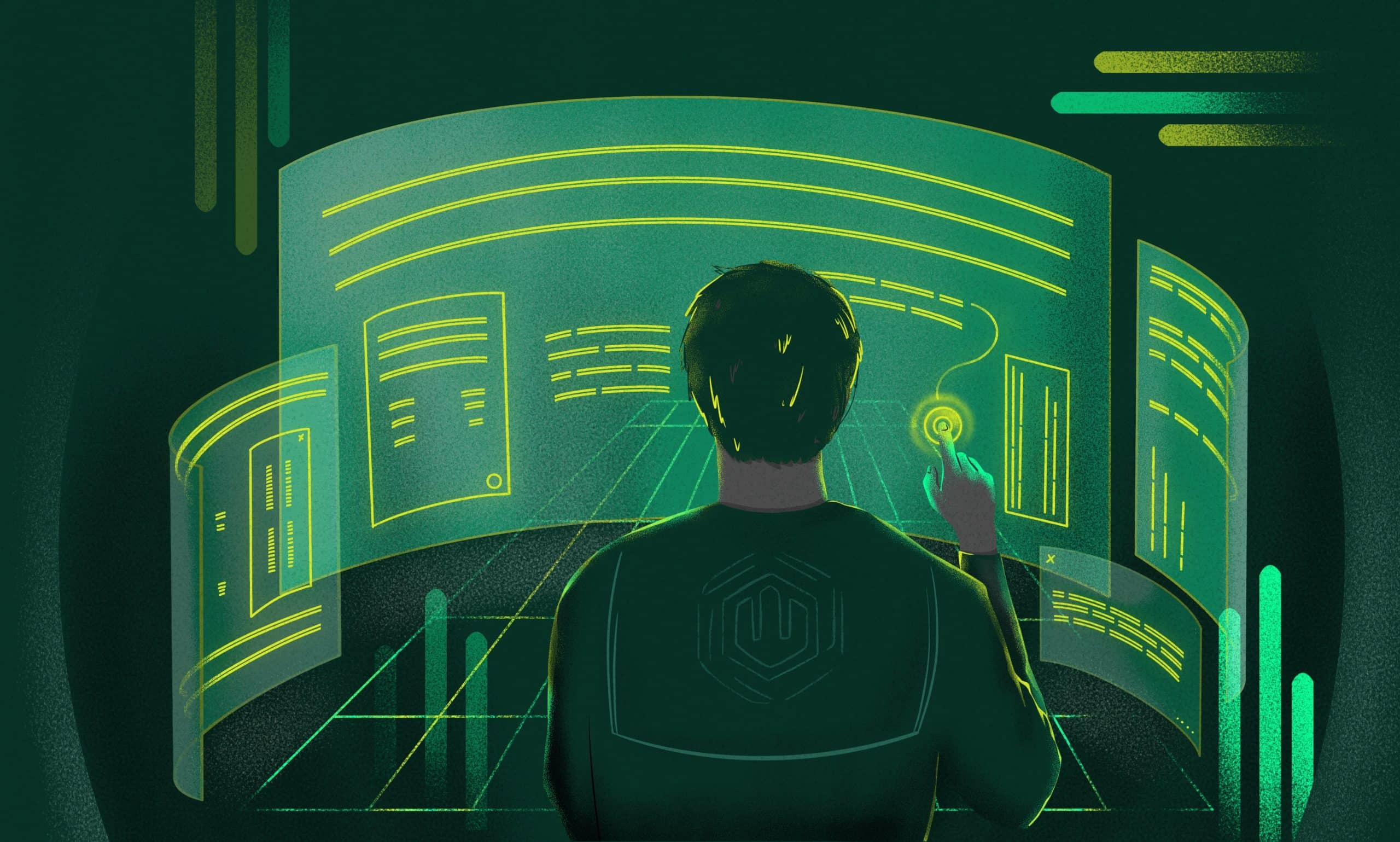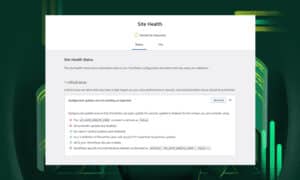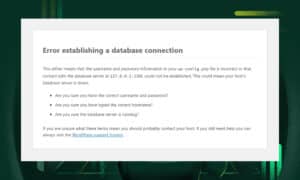In a recent conversation with a user at WordCamp Aisa 2023, Matt Mullenweg, the co-founder of WordPress, shared his thoughts on the rapid changes in the tech industry and the impact they have on open-source communities. He acknowledged that technologies leveraging LLM's like ChatGPT (and even CodeWP) are the future and can significantly improve developer productivity. However, he also recognizes their limitations and the need to be mindful of them.
Important Quotes:
- I think are absolutely the future and we should be thinking about how we can leverage them to make ourselves more productive and not try to fight it.
- There's articles and YouTubes of people creating entire WordPress plugins in minutes using ChatGPT or Bing or other things. I think it would be foolish to ignore this.
- how to we avoid the tragedy of the commons. The best I've been able to come up there by talking to thousands of WordPress members and studying open source and economics is Five for the Future.
Matt compares ChatGPT to a "blurry JPEG of the Web," (referencing to this article, published in the New Yorker) indicating that while it has the potential to enhance our ability to create software quickly, it still has room for improvement. He believes that ignoring such technologies would be foolish and encourages people to embrace them. He also acknowledges that the economic implications of these technologies are uncertain, and it remains to be seen how they will play out in the long term.
Five for the Future, an initiative that aims to make open source and WordPress more sustainable, is also brought up. The idea is simple yet effective: if you have benefited from WordPress in any way, you are encouraged to contribute a small percentage back to the open source community. This concept helps to ensure that open source remains accessible and sustainable for all and can help avoid the tragedy of the commons.
Matt has been a big advocate for Five for the Future, and he sees it as a way to sustain open source communities and keep them thriving. He has personally contributed a lot of his time and resources to WordPress and encourages others to do the same. By giving back, we can all benefit from a thriving open source community and ensure that it remains accessible for future generations.
This conversation highlighted the importance of embracing new technologies like ChatGPT while acknowledging their limitations. He encourages people to contribute to open source communities like WordPress and to support initiatives like Five for the Future. Matt's vision is for WordPress to become core to the fabric of the web for the next hundred years, and he is excited to see what the future holds for the open-source community.
Transcript
(Source - In-video realtime transcriptions, beginning at 38:06)
Hi. My name is Yogish. I'm from India. My question is, you know, recently, we see that there's a lot of upheaval in the tech scenario and things change rapidly, but when they change, a lot of it affects the people who are usually working in the open source, like, when Google went with [Indiscernible] on the jobs, the first thing they cut down was the open source department and on the other side, Microsoft same up with ChatGPT, but they basically bought GitHub, they used all the contributions and they closed-source it. Not closed-source, they monetized it. So, we see that tragedy keeps happening out there. So, as WordPress is around 42% of the web, how does -- how do we avoid the -- how do we make it to the extent -- how do we make the open source, itself, resistant to tragedy of commons?
MATT MULLENWEG: You had a few really good things in there, so I'll try to address each of them. First on -- for technology like ChatGpt and other large language models and other things, I think are absolutely the future and we should be thinking about how we can leverage them to make ourselves more productive and not try to fight it. But they also - - we should recognize their limitations. The best essay I've seen, so far, actually one of my favorite sci-fi writers, ChatGPT is a blurry JPEG of the Web.
But I 100% -- just like you might have an IDE. Imagine that, times 10, and it's going to improve the quality and our ability to create software so quickly. There's articles and YouTubes of people creating entire WordPress plugins in minutes using ChatGPT or Bing or other things. I think it would be foolish to ignore this.
And I don't see it as -- I'm not sure how it's going to play out economically, you know. I was kind of astounded. There are groups, like, Stable Diffusion, who had been able to take things that AI did and create an open source equivalent six months later.
The open source community is also moving very quick on putting these tools more in the hands of people, which is exciting [...] I feel like it's pretty important for us to embrace these technologies. Now, you also have part of the question is, how to we avoid the tragedy of the commons. The best I've been able to come up there by talking to thousands of WordPress members and studying open source and economics is Five for the Future. So, those who are not familiar, Five for The Future is an idea, if you are benefiting from WordPress in some way, if it's changed your life, just kind of there used to be penny jars. You could say, 5% back or whatever you feel like, contribute that back to the open source. So, that's, you know, like a variety of ways for people to contribute and support. I probably don't need [hearing audio echo]. But, I feel like if we can continue, us all benefiting a tremendous amount from WordPress, but also, taking a little bit and putting that back in common, that will help us avoid the tragedy commons. When I see, you know, our other our competitors that haven't had as vibrant community as us. They haven't had that social norm on contributing. That's why we talk about it so much. I do it. myself by contributing a lot of my time back to WordPress. For companies that I'm involved in. Both that I invest in, or run like Automattic. So, yeah, we try to lead by example there, but I think anyone who's really done it also can talk to the benefits of how contributing can benefit you a lot, as well So the good news is, I don't worry about it because it's in everyone's interest for the commons to thrive with open source and that's why when the flywheel gets going of contribution and the improvements in the software, which leads to more contributors, it becomes kind of a world standard, if you will. Much like WordPress is starting to.
You know, we have ten times the number of domains using us as the number 2 in the market, which is Shopify. If we continue doing that, it doesn't mean we don't need to ruthlessly it erate ourselves and get better at doing meetings. If we keep doing that, I can see WordPress -- I could see WordPress being around - - not just around, but core to the fabric of the web 100 years from now and I would love to attend a WordCamp Asia in my 80s.
